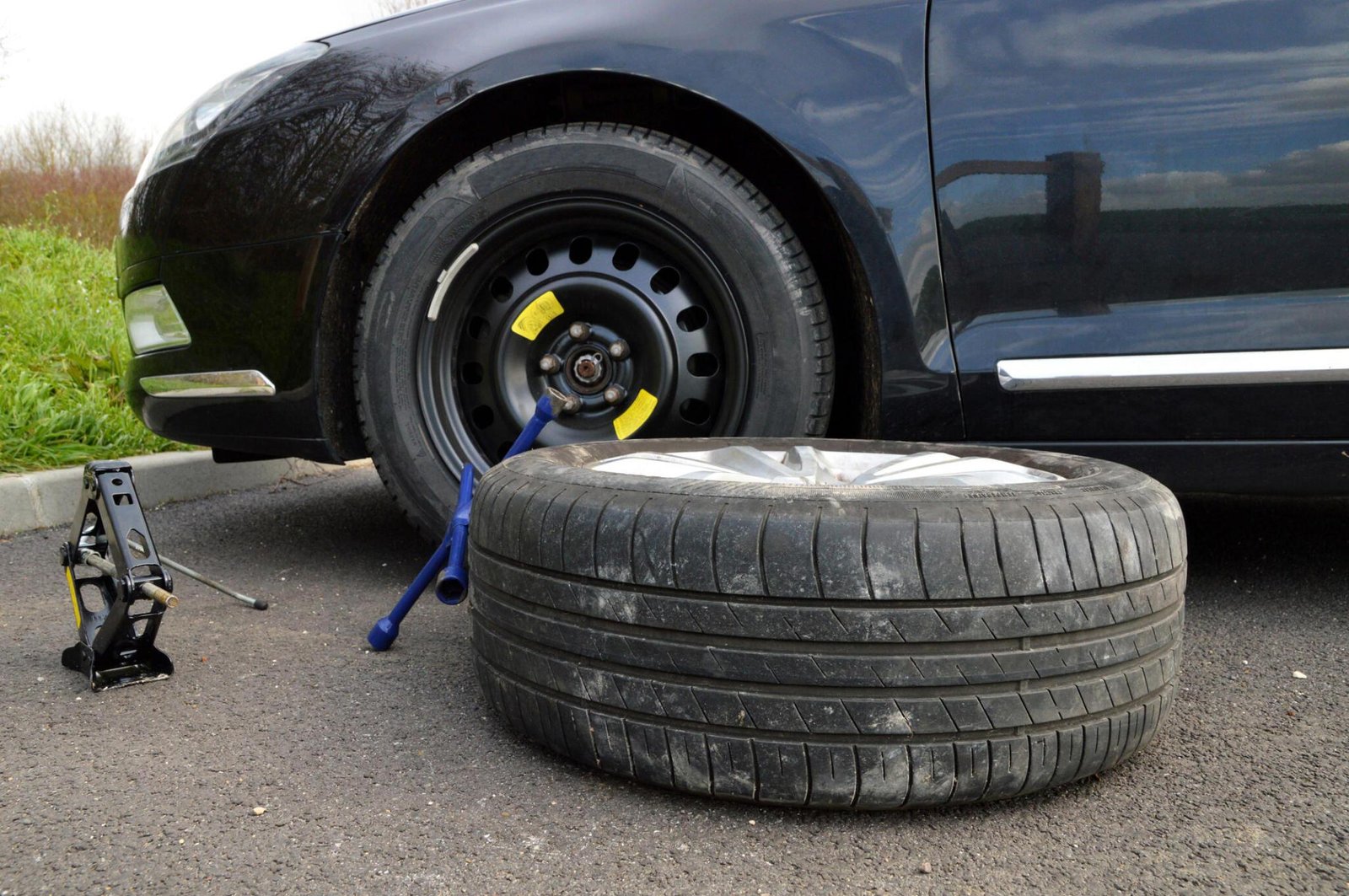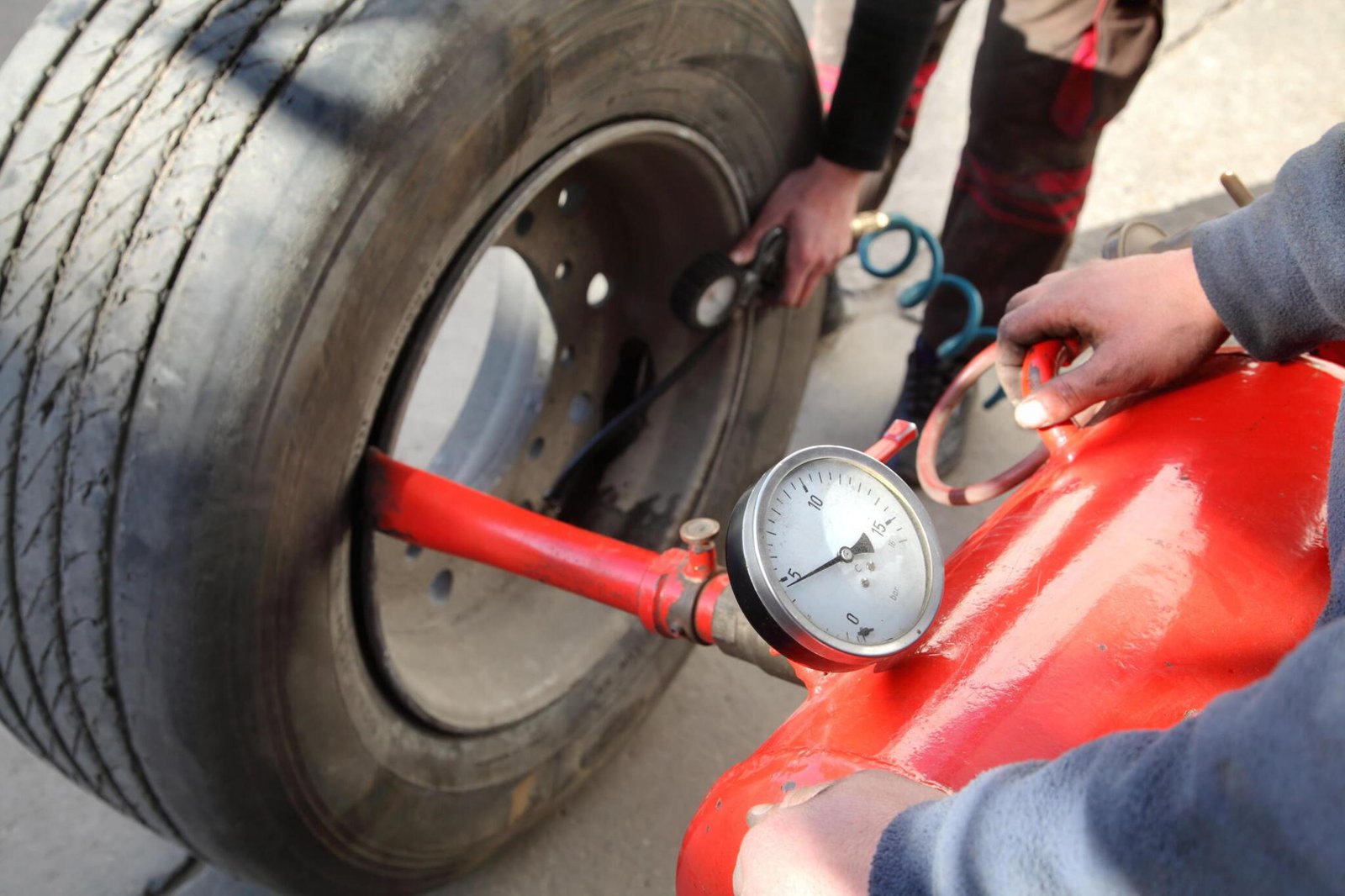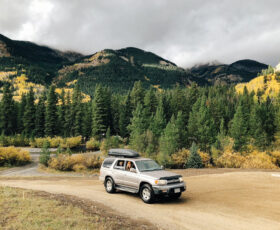Last Updated on 4 months
Touring Tires and Their Comparisons
In the realm of automotive tires, touring tires stand out for their unique blend of features. These tires are engineered to provide a balance between the high-performance capabilities of sports tires and the durability and comfort of passenger tires. Ideal for a wide range of vehicles, from family sedans to luxury SUVs, touring tires offer a versatile solution for drivers seeking reliable performance in various road conditions.
This introduction to touring tires and their comparisons will explore their distinct advantages, compare them with other tire categories, and delve into their suitability for different driving environments. The goal is to equip drivers with the knowledge to make an informed decision when selecting tires that best fit their driving needs and preferences.

Overview of Tire Types
Tires are one of a vehicle’s most crucial components, playing a significant role in safety, performance, and comfort. They come in various types, each designed to meet specific driving needs and road conditions. Understanding the different types of tires is essential for making an informed decision about which tires are best suited for your vehicle and driving habits.
- Summer Tires: Designed for warm climates, summer tires offer optimal performance in dry and wet conditions during the warmer months. They are made with a special rubber compound that provides excellent grip and handling on dry and wet roads, but is unsuitable for cold weather, as the rubber may harden and lose traction.
- Winter Tires: These tires are specifically designed for cold weather conditions. They have a flexible rubber compound and unique tread design, which improves snow, ice, and hard pavement traction. The tread channels snow and slush and provides better grip during winter.
- Performance Tires: Performance tires are suitable for sports cars and high-performance vehicles. They are designed for speed and agility, offering enhanced handling, cornering, and braking capabilities. These tires typically have a softer rubber compound for increased grip, which also means they may wear down faster than other tires.
- Passenger Tires: Passenger tires are designed for regular cars, minivans, and some SUVs. They offer a good balance between comfort, durability, and performance. These tires usually have a longer tread life and provide a smooth and quiet ride, making them suitable for everyday use.
- All-Season Tires: As the name suggests, all-season tires are designed to perform well in various conditions, including dry roads, wet roads, and light snow. They are a practical choice for drivers who experience different weather conditions but avoid extreme winter weather.
Touring tires represent a versatile and popular category. Touring tires are known for their balanced performance. They offer a good mix of the quiet, comfortable ride of passenger tires and the enhanced handling and grip of performance tires. This makes them an excellent choice for drivers looking for a tire that performs well in various conditions, including long-distance travel and daily commuting.
We will delve deeper into touring tires’ specifics, pros and cons, longevity, tires’ ility for different driving conditions, and how they compare with other tire types, such as passenger, performance, all-season, grand touring, and highway tires. This comprehensive overview aims to provide a clear understanding of touring tires and help you determine if they are the right choice for your driving needs.
Types of Tires: Understanding the Differences and Applications
Tires determine a vehicle’s performance, safety, and fuel efficiency. Cater to the diverse needs of drivers and varying driving conditions; manufacturers offer a variety of tire categories. This breakdown delves into the primary classifications:
- Summer Tires: Summer tires are designed for warm weather and provide excellent road grip in dry and wet conditions. The tread compound of summer tires is generally softer, allowing for better traction and handling on hot pavement. These tires are unsuitable for winter as the tread can harden in cold temperatures, reducing grip. Ideal for performance vehicles and regions with mild, warm climates, summer tires offer enhanced responsiveness and cornering abilities.
- Winter Tires: Contrasting summer tires, winter tires are built for cold weather conditions. They are made with a special rubber compound that remains flexible in low temperatures, ensuring better grip on icy or snowy roads. The tread pattern is designed to channel snow and slush and reduce the risk of aquaplaning. Winter tires are essential for vehicles in regions with harsh winters, providing improved safety and performance in challenging weather conditions.
- Performance Tires: These tires are the go-to for sports and high-performance vehicles. They are designed to handle higher speeds and provide excellent traction for aggressive driving maneuvers. Performance tires typically have a softer rubber compound for maximum grip, a shallower tread depth for better road contact, and a stiffer sidewall for improved cornering stability. However, these features often result in shorter tread life and may need to be more comfortable for daily driving than other tire types.
- Passenger Tires: Passenger tires are the most common type on standard cars, minivans, and small SUVs. They are designed to offer a comfortable ride, long tread life, and all-around efficiency. These tires generally have a balanced tread pattern and a more complex rubber compound, offering good durability and a quiet ride. They are ideal for everyday driving and long highway commutes, providing a blend of performance, comfort, and longevity.
- All-Season Tires: All-season tires are a versatile option designed to perform adequately in various conditions, including dry, wet, and light snow. Their tread pattern and rubber compound balance the characteristics of summer and winter tires, making them a practical choice for drivers in regions with moderate weather patterns. However, they may not perform as well as specialized summer or winter tires in extreme conditions.
Understanding Touring Tires
Touring tires represent a versatile and popular category in the tire market, known for their balanced blend of features. This article provides an in-depth understanding of touring tires, covering their definition, characteristics, advantages and disadvantages, mileage expectancy, ideal usage scenarios, and noise level.
Definition and Characteristics
Touring tires are engineered to balance passenger tires’ comfort and high-end sports tires’ performance. They are designed for drivers who seek a tire that performs reliably in various conditions, including long-distance travel and daily commuting. Critical characteristics of touring tires include:
- Enhanced Tread Life: They typically have a more complex rubber compound than performance tires, contributing to a longer lifespan.
- All-Weather Performance: Most touring tires are designed to handle various weather conditions, including wet and dry roads.
- Comfort: Emphasis on a smoother, more comfortable ride, often with reduced road noise.
- Fuel Efficiency: Many touring tires are designed to be fuel-efficient, reducing rolling resistance.
- Balanced Handling: They offer a good compromise between agile handling and stable highway driving.
Pros and Cons
Like any tire category, touring tires have their advantages and disadvantages:
Pros:
- Versatility: Suitable for a wide range of driving conditions.
- Longevity: Typically lasts longer than performance tires.
- Comfort: Provide a smoother ride compared to performance tires.
- Fuel Efficiency: This can contribute to better fuel economy.
Cons:
- Performance Trade-Off: This may offer a different level of grip and handling than dedicated performance tires.
- Weather Limitations: While suitable in various conditions, they might not be as practical as specialized winter tires in extreme snow and ice.
Mileage Expectancy
The lifespan of touring tires can vary based on the tire’s quality, the vehicle type, and the driver’s needs. On average, touring tires last approximately 50,000 miles. This longevity makes them a cost-effective option for many drivers, although it’s important to note that actual mileage is literary.
Ideal Usage Scenarios
Touring tires are particularly well-suited for:
- Daily Commuting: Ideal for regular city and highway driving.
- Family Vehicles: An excellent choice for family sedans, minivans, and small to medium SUVs.
- Long-Distance Travel: Their comfort and durability make them suitable for long road trips.
- Moderate Climates: Perform well in regions where extreme winter conditions are not a concern.
Noise Level
One of the standout features of touring tires is their low noise level. They are designed with tread patterns and materials that minimize road noise, making for a quieter and more comfortable driving experience. This feature is particularly appreciated in family and luxury vehicles where cabin comfort is a priority.
Touring tires are an excellent choice for drivers who need a reliable, durable, and comfortable tire for various driving conditions. Their balanced approach makes them suitable for multiple vehicles and driving styles. When selecting tires, consider your vehicle’s specific needs and typical driving conditions to ensure that touring tires are the right choice.
Comparative Analysis of Touring Tires
Touring tires are popular for many vehicles thanks to their balanced characteristics. However, understanding how they stack up against other tire types, such as passenger, performance, all-season, grand touring, and highway tires, is crucial for making an informed decision. This comparative analysis highlights the differences and similarities among these tire types.
Touring Tires Vs. Passenger Tires
When choosing between touring and passenger tires, it’s essential to understand their distinct characteristics. Touring tires offer a balance of comfort and performance, ideal for various driving conditions, whereas passenger tires are primarily designed for everyday comfort and efficiency on the road.
Touring Tires:
- Offer a balance between comfort and performance.
- Generally, they have a higher speed rating than standard passenger tires.
- Provide better handling and cornering capabilities.
- They tend to have a longer tread life and are often designed for all-season use.
Passenger Tires:
- They are primarily designed for comfort, long tread life, and a quiet ride.
- Usually, they have a lower speed rating.
- More focused on fuel efficiency than performance.
- Ideal for daily driving in urban and suburban settings.
Touring Tires Vs. Performance Tires
The critical difference in comparing touring and performance tires is their intended use. Performance tires are tailored for high-speed handling and superior road grip, especially for sports cars. In contrast, touring tires provide a more versatile and balanced driving experience for many vehicles.
Touring Tires:
- Provide a comfortable ride with better handling than passenger tires.
- They have a longer tread life compared to performance tires.
- Suitable for a wide range of driving conditions and climates.
Performance Tires:
- They are designed for high-speed handling and superior grip.
- Have a softer rubber compound for increased traction, which may wear out faster.
- They are typically used on sports cars and performance-oriented vehicles.
- It is less comfortable for long drives due to stiffer construction.
Touring Tires Vs. All-Season
The debate between touring and all-season tires revolves around versatility and specific performance traits. Touring tires blend the comfort of passenger tires with improved handling, making them suitable for various conditions. In contrast, all-season tires are designed to perform adequately in diverse weather conditions without excelling in any.
Touring Tires:
- Often designed as all-season tires but with added emphasis on performance.
- Provide a balance between wet and dry performance and winter capability.
- Generally, it offers a quieter and more comfortable ride than standard all-season tires.
All-Season Tires:
- They were designed to handle various road conditions, including light winter weather.
- Only excel in some areas but provide adequate performance across different conditions.
- It is a practical choice for drivers in moderate climates who prefer to keep tires the same seasonally.
Touring Tires Vs. Grand Touring Tires
Comparing touring tires with grand touring tires involves examining their performance capabilities and comfort levels. Great touring tires are engineered for higher speeds and enhanced performance, offering a blend of comfort and handling. In contrast, standard touring tires focus more on providing a balanced, comfortable ride for everyday use.
Touring Tires:
- Offer a good balance between comfort and handling.
- Suitable for a variety of vehicles and driving styles.
Grand Touring Tires:
- Provide a higher level of handling and stability at higher speeds.
- Typically, they have a higher speed rating than standard touring tires.
- Offer a blend of the comfort of touring tires and the performance of performance tires.
Touring Tires Vs. Highway Tires
In contrasting touring tires with highway tires, it is essential to consider their primary usage scenarios. Highway tires are built for durability and stability, particularly for larger vehicles and long-distance travel. In contrast, touring tires offer comfort, efficiency, and all-around performance for regular driving conditions.
Touring Tires:
- It is ideal for drivers who prioritize comfort and handling in urban and highway settings.
- Provide a balanced performance across different weather conditions.
Highway Tires:
- They are designed for long-distance driving and heavier vehicles like SUVs and trucks.
- Focus on durability and stability under heavy loads.
- They offer extended tread life and are built to withstand the rigors of highway driving.
Touring tires are a versatile option that offers a good compromise between the comfort of passenger tires, the performance of performance tires, and the all-weather capability of all-season tires.
Performance Aspects of Touring Tires
Touring tires are known for their balanced performance, comfort, and durability. This article dissects various performance aspects of touring tires, including their effectiveness in snow, noise levels, comparison with high-performance tires, and overall durability.
Are Touring Tires Good in Snow?
Touring tires, especially all-season ones, can handle light snow and mildly icy conditions. However, they are not a substitute for dedicated winter tires in harsh, snowy environments. Touring tires have a tread pattern that can provide decent traction in light winter, but their compound and design are not optimized for extreme cold and heavy snow. Switching to specialized winter tires that offer superior grip and safety is advisable for severe winter weather.
Are Touring Tires Quiet?
One of the critical advantages of touring tires is their reduced noise level. They are engineered with tread patterns and materials that minimize road noise, resulting in a quieter and more comfortable driving experience. This makes touring tires an excellent choice for long drives and regular commuting, where ride comfort is a significant consideration.
High-Performance Tires Vs. Touring Tires
The comparison between high-performance and touring tires is a tale of two distinct driving experiences. High-performance tires are designed for speed, agility, and superior handling, making them ideal for sports and high-powered vehicles. In contrast, touring tires offer a balanced mix of comfort, durability, and all-weather performance for everyday driving and various cars.
High-Performance Tires:
- Designed for agility and optimal handling at higher speeds.
- Feature softer rubber compounds for better road grip, especially in dry conditions.
- It has a shorter tread life due to the softer compound.
- Typically noisier and less comfortable over long distances.
Touring Tires:
- Provide a balance between comfort, durability, and performance.
- Features a more complex compound, leading to a longer tread life.
- Offer a quieter and more comfortable ride, suitable for longer journeys.
- Perform well in a variety of weather conditions, including light snow.
Differences in Grip and Traction
Touring tires are designed to offer good grip and traction in various conditions, including wet and dry roads. While they may not match the high levels of grip provided by performance tires on dry roads, they offer a more versatile performance profile. Their tread design helps effectively channel water away, reducing the risk of hydroplaning in wet conditions.
Suitability for Road Conditions
Touring tires are well-suited for a range of road conditions. They are ideal for everyday driving in urban and suburban areas and perform competently on highways. These tires provide a stable and comfortable ride on dry and wet roads. While they can handle light snow, there are better choices for extreme winter conditions or off-road terrains.
Durability and Performance Aspects
One of the touring tires’ standout features is its durability. Tires are constructed with a more complex rubber compound, contributing to a longer tread life than performance tires. This makes touring tires cost-effective for drivers who value longevity and all-around performance.
Touring tires represent a versatile and practical choice for many drivers. They strike an impressive balance between performance, comfort, and durability, making them suitable for various driving conditions and preferences. While they may not excel in extreme situations like heavy snow or high-speed track driving, their overall performance makes them a reliable choice for everyday use.
Usage Scenarios: The Roles of Touring and Performance Tires
Understanding the specific applications for touring and performance tires is crucial for maximizing their potential and ensuring safety. This article outlines the usage scenarios for these tire types, highlighting ideal situations for each and providing insights into their best use in day-to-day driving and performance contexts.
The Uses of Touring and Performance Tires
Understanding the uses of touring and performance tires is critical to selecting the right fit for your driving needs. Touring tires are versatile and practical, perfect for daily commuting, long road trips, and varied weather conditions. On the other hand, performance tires are built for the thrill of driving, offering enhanced grip and handling for high-speed and spirited driving, particularly in dry conditions.
Touring Tires:
- They were designed for a balance of comfort, efficiency, and durability.
- Suitable for a wide range of vehicles, including family sedans, minivans, and small SUVs.
- They are engineered to provide a smooth and quiet ride, making them ideal for long road trips and regular commuting.
- Perform well in various weather conditions, including light snow, rain, and dry conditions.
Performance Tires:
- They are tailored for sports cars and high-performance vehicles.
- Focus on providing superior handling, grip, and responsiveness at higher speeds.
- It is ideal for driving enthusiasts who seek an engaging driving experience.
- Though some are designed to handle wet roads effectively, it is best suited for dry and warm conditions.
Ideal Situations for Touring Tires
Touring tires excel in scenarios where comfort and longevity are priorities:
- Everyday Commuting: Provides a comfortable ride with minimal road noise.
- Long-Distance Travel: Ensures a smooth drive over extended periods, reducing driver fatigue.
- Moderate Weather Conditions: Offers reliable performance in both wet and dry conditions.
- Family Use: Ideal for vehicles used for family errands, school runs, and leisure trips.
Ideal Situations for Performance Tires
Performance tires are at their best in environments that demand agility and speed:
- Sporty Driving: Enhances the driving experience in sports cars and performance vehicles.
- Track Days: Suitable for occasional track use, improving lap times and handling.
- High-Speed Highway Driving: Offers stability and control at higher speeds.
- Dry Weather Conditions: Maximizes grip and performance in warm and dry conditions.
Day-To-Day Driving with Touring Tires
Touring tires are a pragmatic choice for daily driving due to their versatility:
- Urban and Suburban Roads: Effective on city streets and suburban roads, providing comfort and fuel efficiency.
- Changing Weather Conditions: Capable of handling light rain and dry spells with equal proficiency.
- All-Year Use: They can be used year-round without seasonal tire changes in regions without severe winters.
Thrilling Rides with Performance Tires
For those seeking excitement and precision in driving, performance tires are the go-to option:
- Sporty Maneuvers: Enhances the driver’s control during rapid acceleration, braking, and cornering.
- Enhanced Road Feedback: Offers a more connected feel to the road, essential for high-performance driving.
- Warm Weather Conditions: Achieves optimal performance in dry and warm conditions, though some variants are suitable for wet roads.
Touring tires are all-rounders, suitable for a wide range of everyday driving scenarios, offering a blend of efficiency, comfort, and moderate performance. On the other hand, performance tires are specialized for high-speed and agile driving experiences, primarily in favorable weather conditions. Selecting the right tire type depends on the vehicle, driving style, and the typical driving environment, ensuring safety and enjoyment behind the wheel.
Choosing the Right Tires
Selecting the right tires for your vehicle is a critical decision that affects safety, performance, comfort, and fuel efficiency. This article provides a guide to help you determine what kind of tires you need, focusing on the suitability of touring tires for daily drivers and performance tires for high-performance vehicles.
What Kind of Tires Do I Need?
The ideal tire type for your vehicle depends on several factors:
- Vehicle Type and Manufacturer Recommendations: Consult the vehicle’s manual or manufacturer for certain manufacturers’ high-performance cars, which may require specific types of tires for optimal performance.
- Driving Conditions: Consider the typical weather and road conditions you encounter. If you live in an area with harsh winters, you might need winter tires. For regions with a moderate climate, all-season tires could be sufficient.
- Driving Habits: Driving style plays a crucial role. Performance tires might be best if one enjoys spirited driving or has a high-performance vehicle. Touring tires are more suitable for regular commuting and family trips.
- Tire Size and Specifications: Know the vehicle’s correct tire size, load index, and timing. An incorrect tire size can affect the vehicle’s handling and safety.
Touring Tires Vehicle Drivers:
Explore the benefits of touring tires designed for daily driving. These tires prioritize comfort, quietness, and long-lasting performance, making them ideal for commuters and those seeking a smooth and enjoyable driving experience on regular road surfaces.
- Suitability: Ideal for everyday use, touring tires provide a good balance between durability, comfort, and performance.
- Benefits: They offer a quiet, smooth ride, long tread life, and decent fuel efficiency.
- All-Weather Capability: Many touring tires are designed to perform well in various conditions, including light snow and rain.
- Versatility: Suitable for various vehicles, from sedans to SUVs.
- Performance Tires for High-Performing Vehicles:
- Suitability: Best for sports cars and drivers who prioritize handling and speed over comfort.
- Enhanced Handling and Grip: Performance tires have a softer rubber compound and specialized tread designs for increased grip, especially in dry conditions.
- High-Speed Stability: They are designed to handle higher speeds and provide better responsiveness.
- Trade-Offs: These tires often have a shorter lifespan and may not provide as comfortable a ride as touring tires.
Choosing the right tires involves carefully assessing your vehicle’s needs, driving habits, and the type of driving conditions you face. Touring tires are excellent general-purpose tires that suit the needs of daily drivers, offering a comfortable, safe, and efficient ride. On the other hand, performance tires are tailored for those who seek optimal handling and performance from their high-powered vehicles. It’s crucial to weigh these factors and make informed decisions to ensure safety, performance, and satisfaction from your tires.

Conclusion & Recommendations
After an extensive exploration of tire types and their specific uses, we arrive at a crucial juncture: understanding the overall value of touring tires and providing tailored recommendations for your driving needs.
Summary of Key Points
This exploration of various tire categories has highlighted their distinct strengths and applications. While performance tires prioritize agility and summer tires excel in warm weather, touring tires offer a compelling balance for many drivers and conditions.
Are Touring Tires Any Good?
Touring tires stand out for their durability, comfort, and moderate performance. They are designed to provide a smooth, quiet ride with improved fuel efficiency, making them an excellent choice for everyday driving and long road trips. Although less specialized than dedicated winter tires, their all-weather offers reliable performance in varied conditions.
The Versatility of Touring All-Season Tires
Touring all-season tires epitomize versatility. These tires are equipped to handle diverse weather conditions, from dry summer roads to wet autumn streets and light winter snow. This adaptability makes them a practical choice for drivers in regions with moderate climate fluctuations, eliminating the need for multiple sets of seasonal tires.
Recommendations Based on Driving Needs and Conditions
When selecting tires, consider the following:
- Touring tires offer comfort, longevity, and all-weather capability for daily commute and family use.
- For Performance Enthusiasts: Choose performance tires if your driving style leans towards agility and speed, especially for sports cars.
- For Harsh Winter Conditions, consider specialized winter tires for maximum safety and grip.
- For Off-Road Adventures: Look into all-terrain tires that handle rough and uneven surfaces.
Why choose Giga Tires?
In your quest for the perfect tires, Giga Tires offers a comprehensive range to meet every need. Whether you’re looking for the reliability of touring tires, the precision of performance tires, or the ruggedness of all-terrain options, Giga Tires has you covered. Our extensive collection caters to various vehicles and driving preferences, ensuring you find the perfect match for your car and lifestyle.
Ready to enhance your driving experience with the correct set of tires? Visit Giga Tires now to explore our selection and find the perfect fit for your vehicle. Make your choice today and embark on a journey of improved safety, performance, and comfort.
FAQs
Are touring tires good for highway driving?
Yes, touring tires are excellent for highway driving. They balance comfort, efficiency, and durability, making them ideal for long-distance travel and high-speed highway stability.
What are touring tires used for?
Touring tires are used for various driving situations, particularly for everyday commuting, long road trips, and moderate weather conditions. They offer a comfortable ride with good all-around performance.
Are touring tires good for winter?
Touring tires can handle light winter conditions but are unsuitable for severe winter weather. For heavy snow and ice, specialized winter tires are recommended.
What are the characteristics of touring all-season tires?
Touring all-season tires feature a blend of good wet and dry traction, a comfortable and quiet ride, and longer tread life. They are designed to perform well in most weather conditions, including light snow.
What Are the Key Features of Touring Tires?
Critical features of touring tires include enhanced tread life, all-weather performance, comfortable ride, fuel efficiency, and balanced handling. They are versatile for various driving conditions.
What Are the Pros and Cons of Touring Tires?
Pros: Versatility, longer tread life, comfort, and good all-weather capability. Cons: They are not as high-performing as specialized performance tires in extreme conditions and may not provide the grip of winter tires in severe snow.
How Long Do Touring Tires Typically Last?
Touring tires typically last around 50,000 to 70,000 miles, depending on driving habits and tire maintenance. Their longevity makes them a cost-effective choice for many drivers.
In What Driving Conditions Are Touring Tires Ideal?
Touring tires are ideal in various conditions, including wet and dry roads, moderate snow, and highway driving. They are well-suited for everyday use and long-distance travel.









